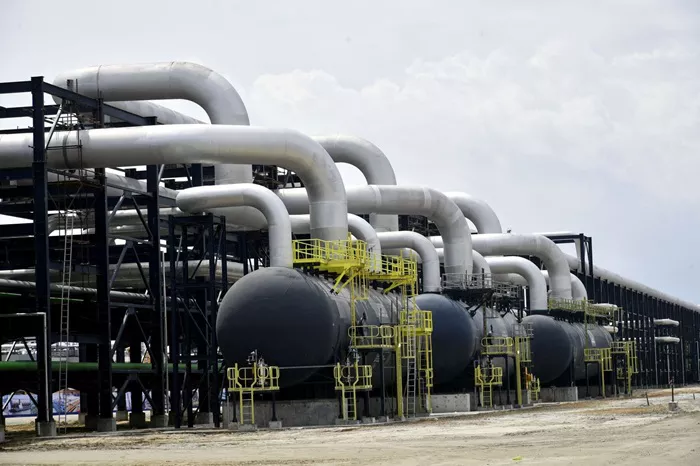The Dangote Petroleum Refinery has reached an agreement to supply 60 million litres of Premium Motor Spirit (PMS) weekly to members of the Independent Petroleum Marketers Association of Nigeria (IPMAN), totaling 240 million litres per month. This direct supply arrangement is set to bypass intermediaries, giving IPMAN the ability to distribute the fuel across the nation.
Chinedu Ukadike, the National Publicity Secretary of IPMAN, confirmed the deal, emphasizing that members will have the capacity to lift substantial quantities of PMS from the refinery, with the exact volume dependent on demand. Ukadike noted that independent marketers are key distributors of the majority of imported fuel in Nigeria, and this new arrangement will ensure a more efficient distribution process.
“We are finalizing the agreement with Dangote Refinery, and our members will begin lifting millions of litres of fuel,” Ukadike stated. He added that the supply could begin before the end of November, once documentation is complete. The deal is expected to enhance fuel distribution efficiency and reduce bottlenecks caused by unreliable middlemen.
Competition Drives Price Drop
The supply agreement between IPMAN and Dangote Refinery is already having a noticeable impact on the market, with petrol prices dropping due to increased competition following the deregulation of the downstream sector. Ukadike pointed out that even the announcement of the deal has led to price reductions, with fuel prices already falling by up to N15 in some areas.
He assured that as IPMAN starts lifting products directly from the Dangote plant, prices will continue to decrease. “Before the year ends, the price will not be as high as it is now,” Ukadike said. This optimism is shared by major oil marketers, who attribute the price reduction to the intense competition in the deregulated market.
While petrol prices remain above N1,000 per litre in many stations, marketers are confident that this is a temporary fluctuation due to market dynamics. “Prices can go down or up. It’s all part of the deregulation process,” explained one major oil dealer.
Ongoing Fuel Imports Despite Domestic Production
Although the Dangote refinery has started producing petrol and other refined products, Nigeria’s dependence on imported fuel persists. Recent data reveals that the Nigerian National Petroleum Corporation (NNPC) and other oil dealers imported over 2 billion litres of PMS in just 42 days, even as the country pushes for self-sufficiency in refined fuel.
IPMAN’s shift towards Dangote’s supply is a step in reducing the reliance on imports, but the overall volume of imports remains high, underscoring the challenges the country faces in achieving full fuel independence.
Deregulation Opens Doors to More Imports
The deregulation of Nigeria’s downstream oil sector has led to a surge in imports, even as local production ramps up. NNPC’s imports in October alone included 994,446 metric tonnes of PMS and over 285,000 metric tonnes of diesel. While the federal government has attempted to curtail imports through initiatives like the naira-for-crude deal, the scale of imports has continued to rise.
Pending Payments and Financial Struggles
Meanwhile, IPMAN members are grappling with a significant financial challenge, as they continue to await payment of N10 billion in Petroleum Equalisation Fund (PEF) reimbursements. The fund, which was meant to cover transportation costs for marketers to sell fuel at uniform prices across the country, has not been paid since the end of the subsidy regime. IPMAN leaders are urging the Nigerian Midstream and Downstream Petroleum Regulatory Authority (NMDPRA) to expedite the release of these funds to ease the financial burden on marketers.
Dangote Refinery Seeks Additional Funding
In a separate development, the Dangote refinery is seeking to raise billions of dollars in funding to increase its crude oil imports and production capacity. Despite receiving initial crude supplies under the naira-for-crude arrangement, the refinery requires additional capital to secure the raw material necessary for full-scale operations. Financial experts have raised concerns about the refinery’s ability to generate profits, citing Nigeria’s volatile currency and the refinery’s over-budget construction costs.
The refinery’s management is in talks with commercial lenders and development banks to secure the necessary funds. However, there are concerns about the stability of the Nigerian naira and the potential for the refinery to face significant financial challenges.
As Dangote works to secure funding and stabilize its crude supply, the refinery’s potential to reduce Nigeria’s reliance on fuel imports remains a pivotal point in the country’s ongoing energy reforms.
Related topic:
What is Gasoline Made of Chemically?

